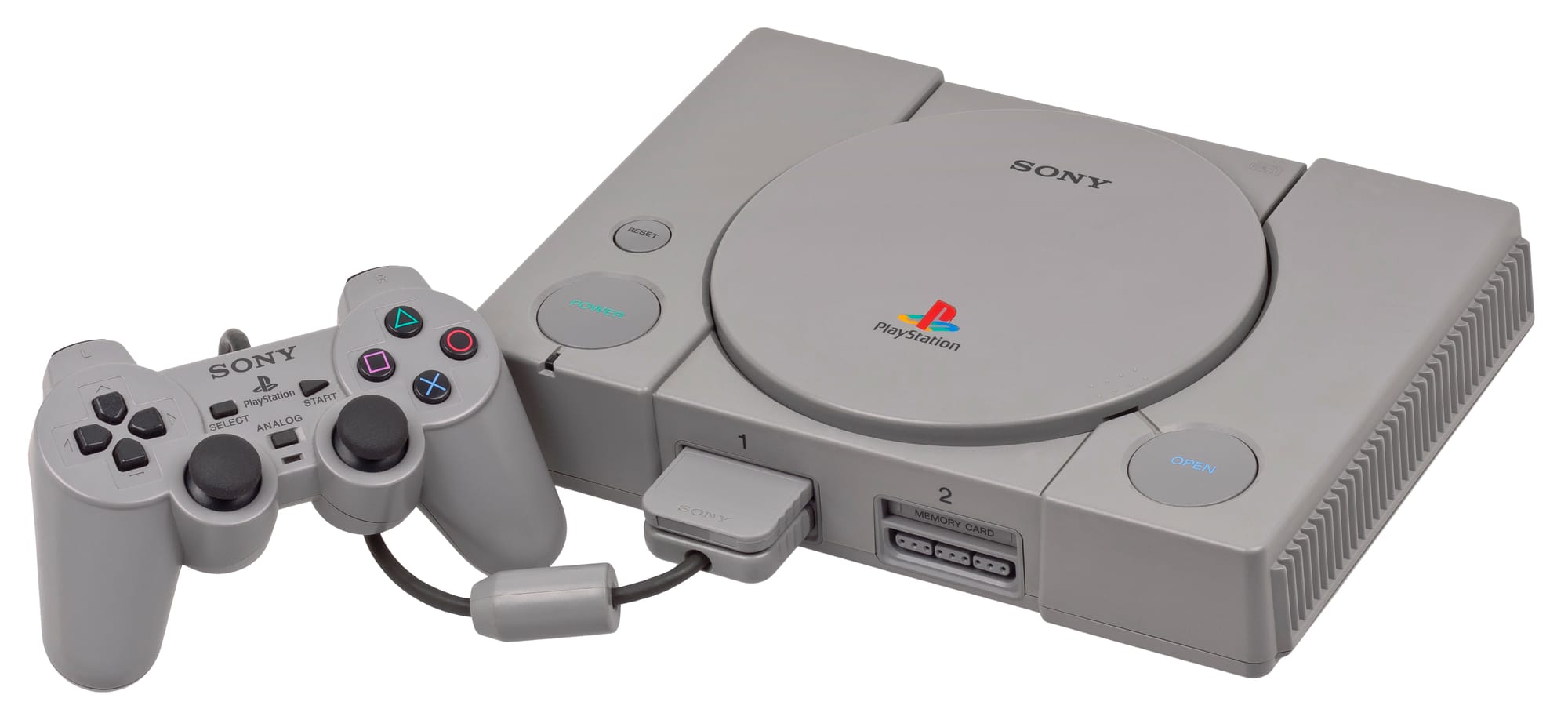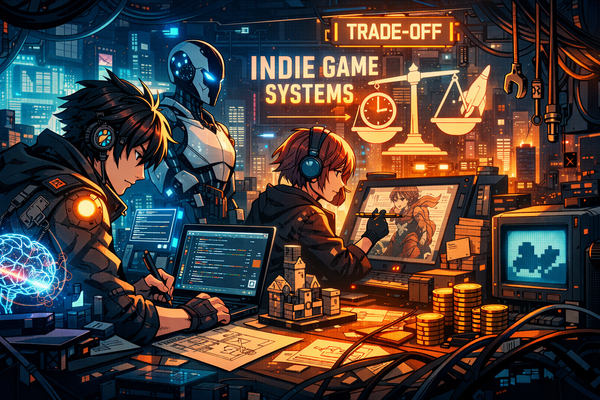Sony PlayStation (PS1): The console that redefined gaming
In 1994, Sony entered the gaming market with the PlayStation, a 32-bit console that would forever change the industry. Originally conceived as a CD-based add-on for the Super Nintendo Entertainment System (SNES), the PlayStation evolved into a standalone console after Sony and Nintendo parted ways. Released in Japan in 1994 and worldwide in 1995, the PlayStation introduced a new era of gaming, blending cutting-edge technology, immersive storytelling, and a focus on 3D graphics.

The PlayStation’s emphasis on CD-ROM technology allowed for larger games, full-motion video, and high-quality audio, which elevated the scope and ambition of game design. With its sleek grey design, distinctive controller, and iconic startup sound, the PlayStation quickly became a cultural phenomenon, selling over 100 million units worldwide.
Technical Innovation and the rise of 3D gaming
The PlayStation was a technical powerhouse for its time. Its 33 MHz RISC processor, custom GPU, and CD-ROM drive enabled developers to create detailed 3D worlds that were previously impossible on cartridge-based systems. This focus on 3D gaming allowed the PlayStation to lead the industry’s transition from 2D sprites to fully-rendered 3D environments.
Games like Gran Turismo and Crash Bandicoot showcased the system’s ability to handle smooth, detailed graphics, while titles such as Metal Gear Solid pushed the boundaries of cinematic storytelling. The PlayStation’s DualShock controller, introduced later in the console’s life, added analog sticks and vibration feedback, setting a new standard for precision and immersion in gaming.
Final Fantasy VII: A defining moment in gaming history
One of the PlayStation’s most iconic titles was Final Fantasy VII, released in 1997 by Square (now Square Enix). Originally planned for the Nintendo 64, Final Fantasy VII moved to the PlayStation due to the system’s CD-ROM capabilities, which allowed for pre-rendered cutscenes, expansive worlds, and a memorable soundtrack. This decision marked a turning point in the Console Wars, cementing Sony’s reputation as the home for ambitious, story-driven games.

Final Fantasy VII followed the story of Cloud Strife, a former mercenary drawn into a battle against the megacorporation Shinra and the enigmatic villain Sephiroth. The game’s deep narrative, emotional moments, and complex characters captivated players worldwide, elevating video games as a medium for storytelling. Its turn-based combat and Materia system offered strategic depth, while the iconic soundtrack by Nobuo Uematsu remains one of gaming’s most celebrated scores.
The success of Final Fantasy VII demonstrated the PlayStation’s ability to deliver cinematic, emotionally engaging experiences, helping it stand out in a crowded market. The game sold over 13 million copies and is often credited with popularizing Japanese RPGs in Western markets.
The playStation library: A treasure trove of classics
The PlayStation boasted an extensive library of games that spanned all genres. From platformers like Spyro the Dragon to survival horror games like Resident Evil, the system offered something for every type of player. Sports titles, fighting games, and arcade ports thrived on the PlayStation, while original franchises like Tekken, Tomb Raider, and Silent Hill cemented their legacies on the console.
Sony’s open-door policy for third-party developers encouraged innovation and creativity, resulting in a wealth of groundbreaking titles. The PlayStation also became a haven for experimental and niche games, fostering a diverse gaming ecosystem that appealed to both casual and hardcore players.
Cultural impact and the PlayStation revolution
The PlayStation wasn’t just a console—it was a cultural shift. Sony’s marketing campaigns targeted a broader audience, moving beyond the “for kids” image of gaming to appeal to teenagers and adults. The console became a centerpiece of living rooms worldwide, and its influence extended into music, movies, and fashion.
For many players, the PlayStation was their first gaming console, introducing them to iconic franchises and unforgettable experiences. The system’s focus on storytelling and cinematic presentation set the stage for modern gaming, where narrative depth and production values are paramount.
The legacy of the PlayStation
The success of the original PlayStation paved the way for Sony’s continued dominance in the gaming industry. Its focus on innovation, storytelling, and player experience remains a cornerstone of the PlayStation brand. The console’s extensive library and cultural impact ensure its place as one of the most influential gaming systems of all time.
Retro enthusiasts and collectors continue to celebrate the PlayStation’s legacy, revisiting its games and preserving its history through emulation and remasters. For millions of players, the PlayStation was more than just a console—it was the beginning of a lifelong passion for gaming.



